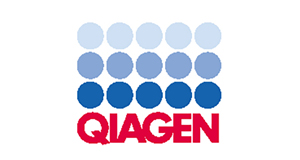Respiratory tract infections (RTIs) are the leading cause of death from infectious disease and the most common reason for empiric antimicrobial use in the US. Viruses are the causative pathogen in half to two-thirds of patients hospitalized with an RTI. Therefore, rapid identification of viral etiologies and differentiating them from bacterial can improve patient management and lead to optimized antibacterial and antiviral use, assist with decisions on hospital admission and infection control and improve clinical and economic outcomes.
The advent and widespread adoption of antimicrobial stewardship (AMS) has improved the overall quality of care for patients afflicted with infectious syndromes and has helped to preserve antibiotics for future patients. Among the many tried-and-true AMS intervention strategies, the use of rapid diagnostic tests (RDTs) has quickly established itself as one of the most impactful. While robust data exist supporting RDTs for bloodstream infections, considerably less guidance is available for RTI RDTs, especially lower RTIs (LRTIs). Despite this, the potential impact of RTI RDTs on patient outcomes and AMS metrics is substantial given the uncertainty that plagues diagnosis and treatment of RTIs.
The complexity of RTIs and available multiplex RDTs necessitates close collaboration between clinicians and laboratorians to ensure proper implementation, interpretation and communication of test results.
In this webinar, the featured speaker will explain how RTI RDTs can enable quick and definitive pathogen identification to support antimicrobial stewardship efforts and optimize clinical and economic outcomes. Additionally, the speaker will provide guidance and examples of how to evaluate and compare RDTs using institutional data, follow optimal diagnostic stewardship principles and assess the impact of these assays.
Register now to secure attendance to a meaningful discussion on the use and impact of rapid diagnostic tests as an antimicrobial stewardship strategy.
Speaker

Eric Wenzler, PharmD, BCPS, BCIDP, AAHIVP, Department of Pharmacy Practice, University of Illinois, Chicago College of Pharmacy, USA
Eric Wenzler is an Assistant Professor in the Department of Pharmacy Practice at the University of Illinois at Chicago College of Pharmacy. He completed a three-year Infectious Diseases Pharmacotherapy Fellowship at the University of Illinois at Chicago in June 2017. He graduated from Ohio Northern University Raabe College of Pharmacy in 2012 and completed his Postgraduate Year One training in 2013 and Postgraduate Year Two in 2014 in Infectious Diseases at The Ohio State University Wexner Medical Center in Columbus, Ohio. Dr. Wenzler’s research interests include pharmacokinetics, pharmacodynamics, antimicrobial stewardship and clinical microbiology.
Who Should Attend?
- Antimicrobial Stewardship Program Team Members
- Infectious Disease Clinicians
- Critical Care Clinicians
- Clinical Laboratory Professionals
- Emergency Department Clinicians
- Laboratory Directors and Managers
- Hospital C-Suite
- Sepsis Nurses
- Pharmacists or Allied Healthcare Providers
What You Will Learn
- Type of patient for which a respiratory tract infection (RTI) rapid diagnostic test (RDT) may be ideal and the potential benefits, including shortening the duration of empiric broad spectrum antimicrobial therapy, decreasing length of stay and costs
- The importance of time to effective and optimal antimicrobial therapy and how RDTs can affect these crucial metrics
- Review of published data regarding the impact of RTI RDTs on clinical, economic and antimicrobial stewardship (AMS) metrics
- Tips for RTI RDT justification, implementation and use
Xtalks Partner
QIAGEN
QIAGEN is the leading global provider of Sample to Insight solutions to transform biological materials into valuable molecular insights. QIAGEN sample technologies isolate and process DNA, RNA and proteins from blood, tissue and other materials. Assay technologies make these biomolecules visible and ready for analysis. Bioinformatics software and knowledge bases interpret data to report relevant, actionable insights. Automation solutions tie these together in seamless and cost-effective molecular testing workflows. QIAGEN provides these workflows to more than 500,000 customers around the world in Molecular Diagnostics (human healthcare), Applied Testing (forensics, veterinary testing and food safety), Pharma (pharmaceutical and biotechnology companies) and Academia (life sciences research). Further information can be found at http://www.qiagen.com.
You Must Login To Register for this Free Webinar
Already have an account? LOGIN HERE. If you don’t have an account you need to create a free account.
Create Account
